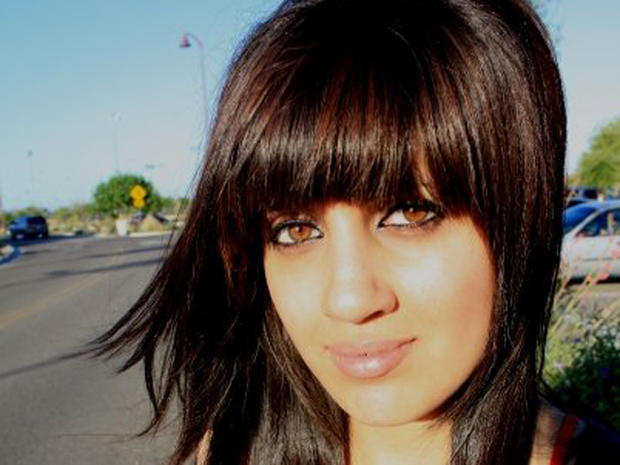Planned national hotline hopes to help American girls facing a forced marriage
(CBS) On Oct. 29, 2009, 19-year-old Arizona student Noor Almaleki was mowed down in broad daylight by an SUV. The man driving the vehicle was her father, Faleh Hassan Almaleki, who, according to police, killed his daughter because she had become "too Westernized" and had fled a marriage he arranged for her in Iraq. In 2011, Almaleki was sentenced to 34-and-a-half years in prison for her murder.
Noor's story, which aired Saturday night on 48 Hours, exposed two phenomena many people had no idea existed in the United States: forced marriage and so-called honor killing.
"Honor violence and forced marriage are often linked," says Amanda Parker, communications director of the AHA Foundation, a non-profit dedicating to protecting western women from oppression justified by religion and culture. "There are a lot of different methods to force women into marriage, from violence, to emotional blackmail, to social isolation."
Read: Honor killing under growing scrutiny in the U.S.
Read: American law enforcement encounters "honor" violence
There is no comprehensive national data on either issue, but a 2011 survey by the Tahirih Justice Center, a non-profit organization that advocates for immigrant women, revealed that social service providers across the country are getting calls from women wanting advice on how to escape forced marriages. The survey found that in just two years, there were as many as 3,000 known or suspected cases of forced marriage in the U.S.
"We've known anecdotally that this is happening for a while," says Parker. "But it's a problem that is largely unknown even among social service providers."
AHA hopes to change that. This fall, the foundation plans to launch the nation's first forced marriage hotline. Modeled on a similar hotline in the United Kingdom, the national call-in number will be answered by trained crisis specialists who will be able connect callers with everything from legal services to emergency housing to counseling to law enforcement.
Read 48 Hours producer Jonathan Leach's essay about reporting on honor violence
AHA has already started doing training for social service providers through live sessions and webinars, but in the lead-up to the hotline launch, the organization is planning an awareness campaign that will include trainings with child protective services, educators and law enforcement.
"The main thing is for them to know, if a young girl comes to them and says, 'My dad says he's going to kill me because of how I dress,' that they should take her seriously."
Parker says AHA hopes that raising awareness, whether through media reports on cases like Noor Almaleki and Sandeela Kanwal of Georgia, or the kind of education and outreach they hope the hotline will provide, will save lives by giving the women and girls who might be afraid to speak up about their fears - fears that many in the U.S. might find strange, or hyperbolic - permission to use their voice.
